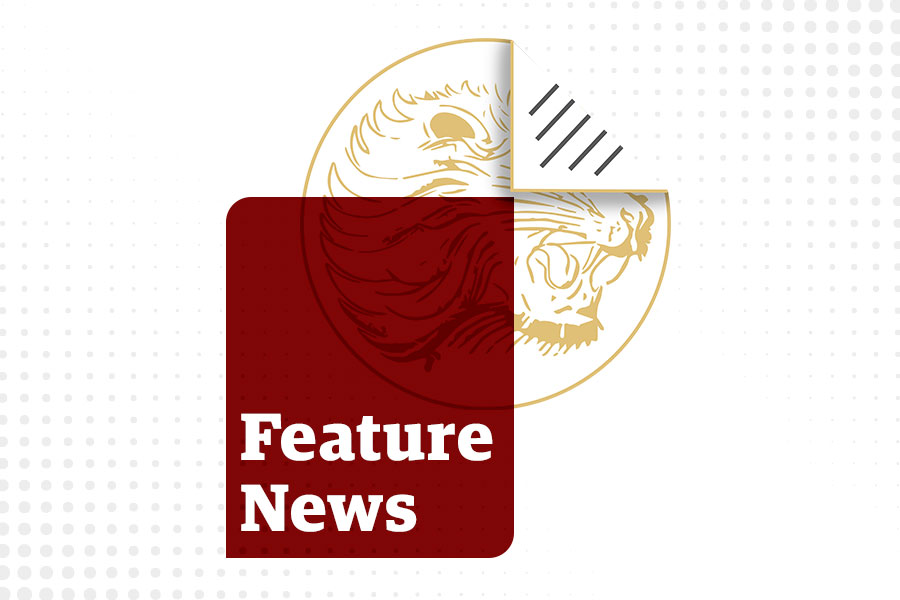
Exclusive Interviews | Sep 07,2025
Sep 17 , 2022
By Christian Tesfaye
There are many economic indicators that people are worried about at present. There is inflation, which has been in the 30pc to 40pc range for around a year. This is the stickiest inflationary pressure Ethiopia has experienced on record, with double digit inflation having lasted nearly half a decade, according to official figures.
There is a foreign currency shortage, which has debilitated the country for decades. It is only getting worse and contributes to headline inflation. Neither is debt burden a small matter. With principal payments for the 10-year one billion dollar Eurobond coming up, debt service will be the highest cost to the federal government in the short- to medium-term.
But one stands out for having a significant long-term implication. This is the fall in capital investments, especially in infrastructure. In the short term, a new road project benefits no one else except the few contractors and consultants that work on it. It may even be nuisance to households that need to be relocated or are impacted by the construction. But, over the long term, it is a high return investment that pays dividends in economic growth for decades to come.
Several developments point to the fall in capital investments. The most straightforward is the federal budget. For the first time, capital spending is lower than recurrent, coming in at 218 billion Birr. It will be only 2.9pc of GDP. It is a continued slide from 2020's 5.4pc and the previous year’s three percent. A decade ago, it was a tenth of GDP, according to Cepheus Research & Analytics.
Ethiopia’s import data underlines the fall in capital investment. Capital goods import fell 22pc last year to just over three billion dollars. The main underperformers were in the agriculture and industrial sector. We do not want import volumes to fall so the trade deficit and foreign currency shortage could ease. But capital goods imports are not where we want this to happen; instead, it is in consumer goods.
Ethiopia’s GDP growth over the past two decades was driven by infrastructure spending. It was a type of supply-side economics, where instead of cutting taxes to incentivise private sector investments, the government would take the lead by spending aggressively (especially on infrastructure). This, in turn, creates jobs, improves demand and subsequently increases goods and services in the economy and lifts economic output. It had its flaws, crowding out the private sector, feeding inflation and creating a debt burden. But few apolitical commentators would argue that it was not a net positive.
It is fine to slow down capital spending for a while, especially in the current environment, where raising debt financing is cost prohibitive due to high global interest rates. It will be harder on Ethiopia, which has a terrible credit rating, and needs to ease its debt burden. It is all the more sadder that the debt has not entirely been put to good use, with delays and outright corruption leading to massive wastage. It is a bill that the public has to foot through its tax burden for the foreseeable future.
Still, the current scenario should not continue for too long. There is a major gap in infrastructure, and building it up has been the primary driver of growth over the past three decades. The private sector may take some of the load off (for instance, in data centres and even electric transmission and generation) but could never substitute for the government. Highly underserved communities will not be targets for investment and large projects with a long-term horizon will not be incentivising. The government ought not to step away for too long.
PUBLISHED ON
Sep 17,2022 [ VOL
23 , NO
1168]


Exclusive Interviews | Sep 07,2025

Radar | Feb 16,2019

Radar | Mar 25,2023

Featured | Jul 10,2020

Radar | Oct 14,2023

Photo Gallery | 171745 Views | May 06,2019

Photo Gallery | 161982 Views | Apr 26,2019

Photo Gallery | 151726 Views | Oct 06,2021

My Opinion | 136319 Views | Aug 14,2021





Dec 22 , 2024 . By TIZITA SHEWAFERAW
Charged with transforming colossal state-owned enterprises into modern and competitiv...

Aug 18 , 2024 . By AKSAH ITALO
Although predictable Yonas Zerihun's job in the ride-hailing service is not immune to...

Jul 28 , 2024 . By TIZITA SHEWAFERAW
Unhabitual, perhaps too many, Samuel Gebreyohannes, 38, used to occasionally enjoy a couple of beers at breakfast. However, he recently swit...

Jul 13 , 2024 . By AKSAH ITALO
Investors who rely on tractors, trucks, and field vehicles for commuting, transporting commodities, and f...

Oct 4 , 2025
Eyob Tekalegn (PhD) had been in the Governor's chair for only weeks when, on Septembe...

Sep 27 , 2025
Four years into an experiment with “shock therapy” in education, the national moo...

Sep 20 , 2025
Getachew Reda's return to the national stage was always going to stir attention. Once...

Sep 13 , 2025
At its launch in Nairobi two years ago, the Africa Climate Summit was billed as the f...

Oct 5 , 2025 . By NAHOM AYELE
In Meqelle, a name long associated with industrial grit and regional pride is undergo...

Oct 5 , 2025 . By BEZAWIT HULUAGER
The federal government is set to roll out a new "motor vehicle circulation tax" in th...

Oct 5 , 2025 . By NAHOM AYELE
The Bank of Abyssinia is wrestling with the loss of a prime plot of land once leased...

Oct 5 , 2025 . By BEZAWIT HULUAGER
The Customs Commission has introduced new tariffs on a wide range of imported goods i...